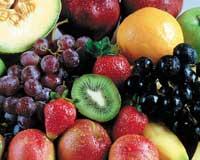Cholesterol, essential for living

Problems appear when the blood cholesterol level is very high, causing many headaches. The increase in blood cholesterol levels causes cholesterol to accumulate in the walls of the arteries, reduces its diameter and hinders blood circulation, increasing the risk of circulatory and cardiac diseases.
However, it is not recommended to completely remove cholesterol from the diet, since the liver, as a rebound, generates large amounts of cholesterol.
Blood cholesterol can be of two types:
Endogenous Cholesterol produced in our own body through other original fats that do not contain cholesterol. The liver produces endogenous cholesterol.
Exogenous Cholesterol inherent in food, which passes from the intestine to the blood. The following table lists foods with more cholesterol.
Food Q. Cholesterol 100 gr.Hills Egg yolk Caviar Mayonnaise pot Foie gras and pate Cigalas, prawns and prawns
2,000 mg 1,480 mg 440 mg 260 mg 255 mg 150 mgThe key to cholesterol is moderate: it is recommended to take up to 300 mg/day to maintain an adequate level of cholesterol in the blood. Several studies have concluded that to increase blood cholesterol levels more than due it is mandatory to conduct a diet of approximately 1,500 mg of cholesterol per day for a few weeks.

However, blood cholesterol levels not only increase the cholesterol that penetrates food, but have a lot to do with saturated fats in food and trans fats (transformed by a chemical process). Consequently, foods that in addition to containing cholesterol have a high content of saturated fats are those that raise blood cholesterol levels: viscera, butter, cream, sausages, meat, milk and whole dairy, egg yolk and fish eggs. On the other hand, all cakes, cookies and foods of this type made industrially (donutsa…), in addition to containing much cholesterol, contain trans fats that if consumed much are harmful to the heart and blood circulation.
Fortunately, polyunsaturated fats work the opposite way, as they lower blood cholesterol levels; nuts and fish have this type of fat, especially blue fish, for its high content in omega-3 fats.
In addition, lecithin and fiber help reduce cholesterol levels. Lecithin has been widely used as a supplement to add to certain foods, but recent studies suggest that its use as an additive is not very effective, so it is preferable to take foods that contain this ingredient naturally. For example, soy, egg yolk, legumes, wheat germ, and walnut contain lecithin. Fiber is also very good, as it hinders the absorption of cholesterol and fats passing through the intestine and helps reduce absorption by 40-60%.

Some of the non-nutritious ingredients found in foods, phytosterols, are very effective in lowering blood cholesterol levels, so some brands have started incorporating phytosterols to some margarines and mayonnaise. According to some studies, they help to reduce between 10 and 15% cholesterol: on the one hand, they make it difficult to absorb it and, on the other, they help to expel it from the body through bile salts. In fact, vegetable oils, cereals, and nuts contain phytosterols.
In the previous article it has been mentioned that the level of cholesterol in blood has a direct influence on all diseases of the heart and blood circulation, being an important risk factor. In addition to this factor, high stress, stress, smoking and lack of exercise greatly increase the chances of suffering these diseases.
Unfortunately, the blood cholesterol level of many children and adolescents is very high, so their health is put in a critical situation. In fact, they eat many snacks: worms, popcorn, chips, etc. These contain trans fats that form after the hydrogenation of plant-based fats and which, apparently, although they do not contain cholesterol itself, significantly raise blood cholesterol levels. So from childhood we have to try the heart

Between the age of thirty and fifty, men are more likely to suffer heart disease than women. But from that age opportunities are equated. While a woman has a menstruation, a large amount of cholesterol in the blood is used in the production of hormones, but by decreasing the production of hormones after menopause, the risk of high cholesterol increases if it does not decrease the amount of cholesterol and saturated fats that are ingested through food.
If we introduce many antioxidants in our daily diet (vitamins A, E and C and selenium), less than 30% of the calories ingested by fats (10% saturated fats, 10% monounsaturated fats and 10% polyunsaturated fats) and ingest a high calcium content, we will help maintain heart health and blood circulation.
Buletina
Bidali zure helbide elektronikoa eta jaso asteroko buletina zure sarrera-ontzian








